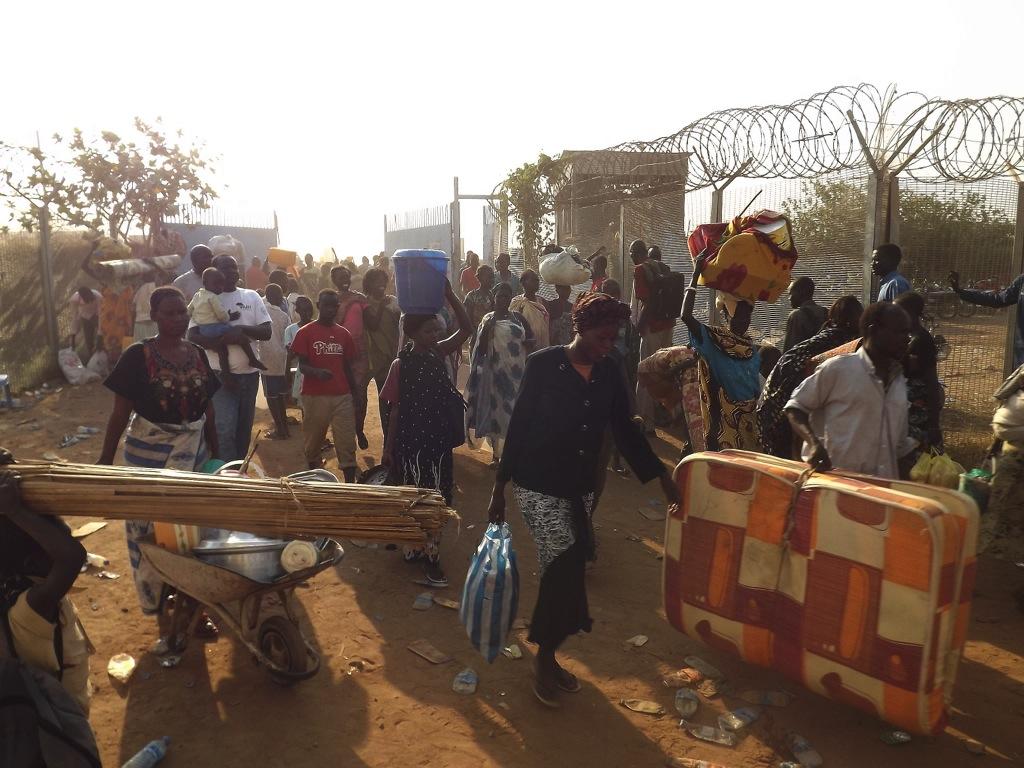US troops deployed in South Sudan, on ‘precipice’ of civil war
People arrive to seek refuge in the UN compound in Juba, on December 18, 2013. Days of fierce fighting in South Sudan’s capital has killed hundreds of people and sent thousands seeking refuge.
The United States has deployed 45 troops to protect Americans in South Sudan, as President Barack Obama warned that the country was on the brink of civil war.
Fighting has spread around the country after clashes in the capital last weekend, with the army losing key ground in the northeast to ethnically divided rebel gangs.
"South Sudan stands at the precipice," Obama said in a statement Thursday.
"Recent fighting threatens to plunge South Sudan back into the dark days of its past."
Obama said the US force was deployed on a mission to protect American citizens and their property, though it is equipped for combat. The troops were sent Wednesday, he told Congress, and "will remain in South Sudan until the security situation becomes such that it is no longer needed."
The United Nations Security Council was preparing to hold emergency talks on the crisis Friday, a day after three of its peacekeepers died in South Sudan.
India's UN envoy said three Indian UN peacekeepers were "targeted and killed" at their base in Jonglei state, where rebels have taken control of the regional capital, Bor. They were attacked by members of one of Sudan's two main ethnic groups, the Nuer, as they sheltered civilians belonging to the other, the Dinka.
More from GlobalPost: 3 Indian peacekeepers killed in South Sudan as rebels seize provincial capital
The government — headed by President Salva Kiir — has accused former vice president Riek Machar of attempting to stage a coup with the help of soldiers loyal to him. Machar denies the allegations.
Some 500 people have been killed since clashes broke out between rival army factions in Juba, the capital, on Dec. 15.
Since then, the UN says violence has broken out elsewhere "along ethnic lines," with fighting reported between Nuer and Dinka. Kiir belongs to the majority Dinka, while Machar is an ethnic Nuer.
The foreign ministers of four neighboring East African countries arrived in Juba on Thursday to lead mediation efforts.
"Inflammatory rhetoric and targeted violence must cease," Obama's statement said. "All sides must listen to the wise counsel of their neighbours, commit to dialogue and take immediate steps to urge calm and support reconciliation.
"South Sudan's leaders must recognize that compromise with one's political enemy is difficult; but recovering from unchecked violence and unleashed hatred will prove much harder."
Agence France-Presse contributed to this report.
